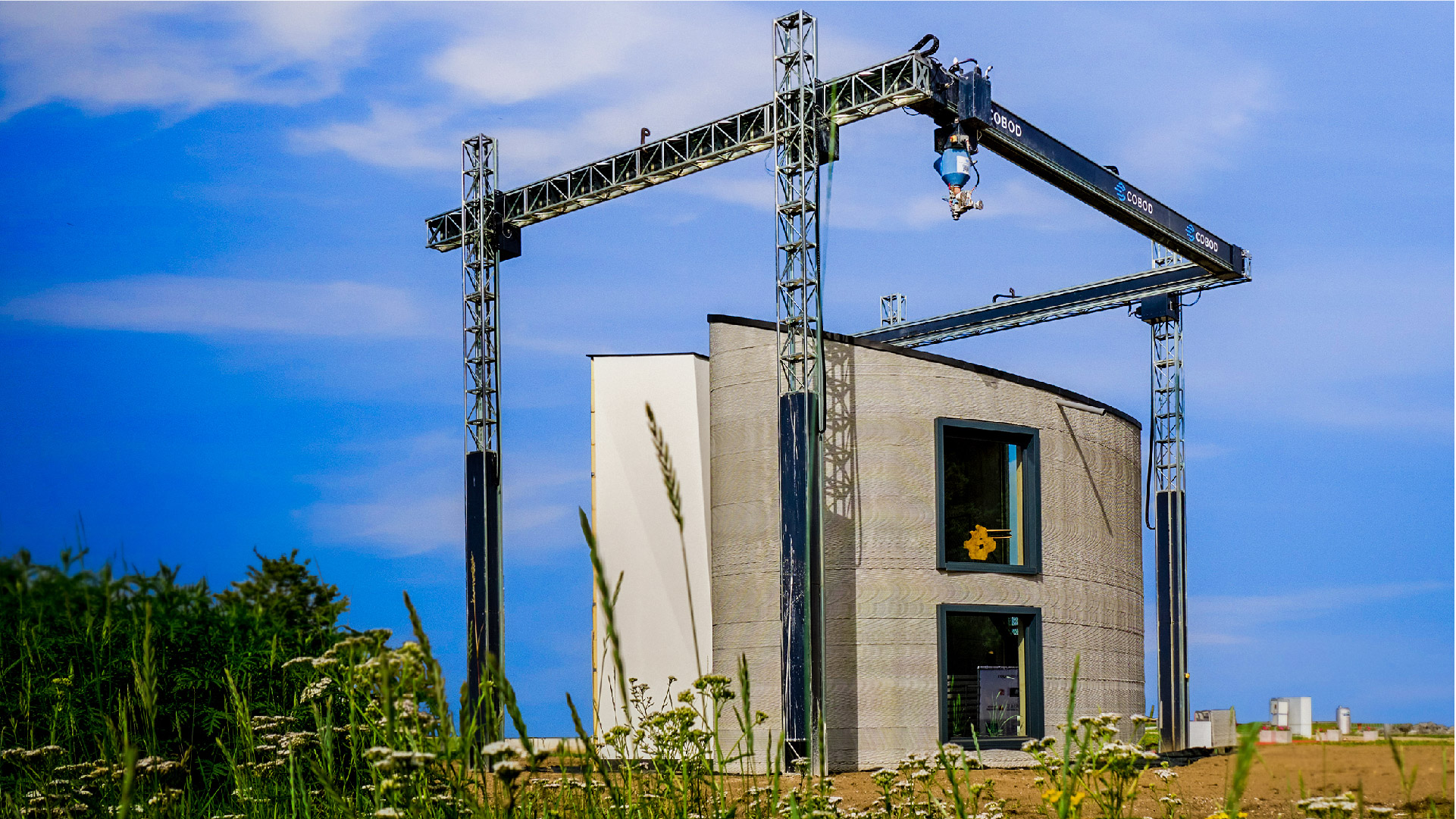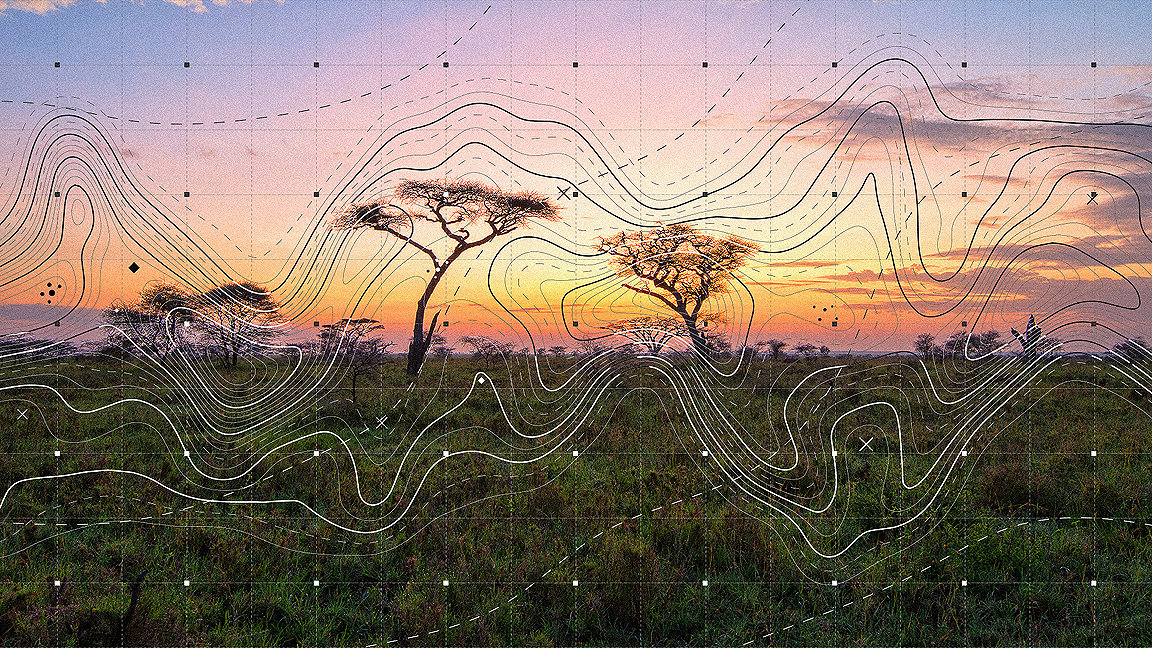
“Most of the people who study land tenure in Europe are technicians,” says Dr Kwabena Obeng Asiama of Ghana’s Kwame Nkrumah University of Science and Technology. “Most of the people who study land tenure in Africa are anthropologists. It shows how closely tied land tenure is to the social system here.”
Throughout much of Africa, and west Africa in particular, customary land rights (CLR) – sometimes called traditional or informal land rights – are the system by which the majority of land is held. It is, from an outsider’s viewpoint, an almost infinitely complex and delicate system often relying on recognition of a particular people’s or tribe’s historical association with that land. Traditional leaders are often the de facto managers of the land, on behalf of their communities.
Asiama explains that it is very different from Western models of formal land tenure (FLT) which depend on details of ownership being lodged at a central public registry. But that, he says, is to misunderstand the way many Africans regard land. “Essentially, the idea about CLR is group ownership … The chief holds the land in trust for the people.”
Pressures on this system are increasing, however. The Food and Agriculture Organization for the United Nations (FAO) recently said that “safe tenure rights [are] fundamental to ending poverty in Liberia” and has also undertaken similar research in Sierra Leone calling for land reform. Foreign corporations can be uneasy about the lack of clarity surrounding land ownership and unwilling to invest.
And, says, Dr Bismark Aha, of the University of Portsmouth in the UK, CLR can often penalise “the vulnerable: the indigenous and pastoral communities and especially women. Young people are also really struggling to get access to land.”
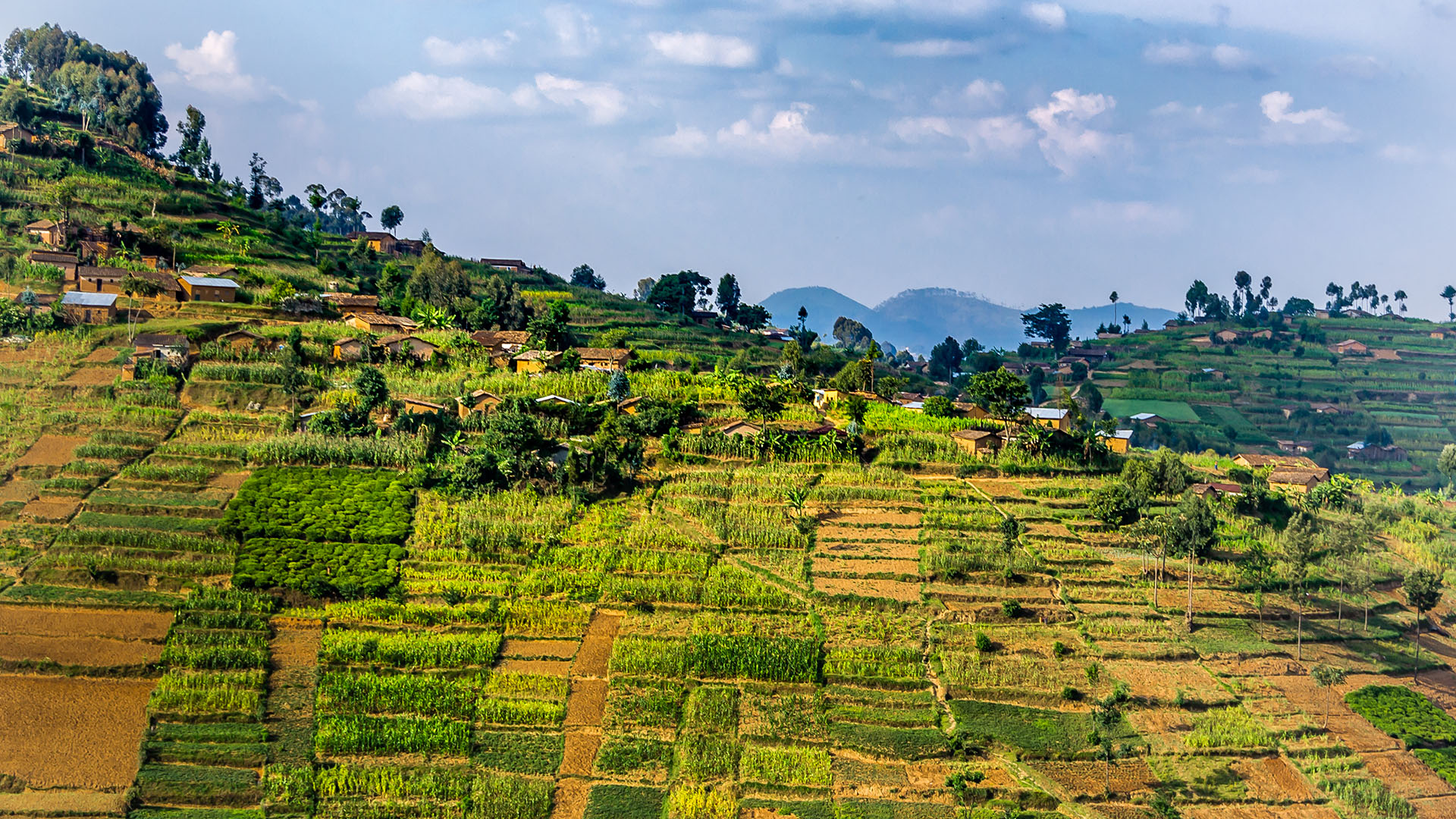
Agricultural land near Nyungwe National Park, Rwanda
Rapidly growing populations
On top of the traditionally vulnerable groups that Aha lists, demographics are also creating a timebomb in Africa. Many African countries’ populations are growing rapidly - last year, the World Economic Forum estimated that more than 60% of Africa’s population was under the age of 25. As the impacts of climate change become more apparent, viable land on the continent is becoming a contested resource, its price rising fast in many areas.
“Land disputes and conflicts are very common,” says Aha, who also grew up in Ghana. “When CLR coexist with FLT, formal title seems to be considered superior. The customary tradition doesn’t give much protection.” This, he says, means “there is a lot of land grabbing. [Corporations and governments] take advantage of weak customary rights.”
Ghana and Rwanda are at the opposite ends of the CLR versus FLT spectrum. In Ghana, only about 20% of land is formally registered, most of it in urban centres. Rwanda, on the other hand, has now registered all its land. The drive behind registration was to make the disputes that contributed to the country’s 1994 tribal genocide less likely. And, on paper, the move to a modern, formalised system should have been a triumph for bodies such as the UK’s now-defunct Department for International Development which funded this enormous project. But the programme has not been without its issues.
There have been accusations that the Rwandan government appropriated land during the process of moving to FLT. Moreover, when the land was parcelled out to individuals rather than held communally by tribal communities, some people ended up with plots too small to be viable and large-scale consolidation has been needed.
“They needed to make the land parcels bigger,” says Asiama, “but people who had been given the freehold title for those parcels – and been told how good it would be for them – didn’t want to give it up for redistribution.”
Another problem, according to James Kavanagh MRICS, RICS director of land & resources global group, is that Rwanda did not “build capacity into its system. Professionals are only based in the big cities and are generally only available to people local to them and those who can afford their fees.”
As a result, he says, many rural Rwandans are returning to an informal system of property selling and ownership and the primacy of the country’s Land Management Information System is being undermined. “If the systems aren’t built properly,” says Kavanagh, “they stop working.”
“There are checks and balances with customary land rights (CLR) but they are prone to mismanagement. Corruption is a problem” Dr Kwabena Obeng Asiama, Kwame Nkrumah University of Science and Technology
Getting land registered
Despite the issues faced in Rwanda, other countries are undertaking programmes that will mean a greater percentage of their lands are covered by FLT. Kenya, Ethiopia, Namibia and Botswana (which, like Ghana, has one of the highest proportions of CLR tenure) all have registration drives underway.
Part of this may be because land transactions are among the world’s most corrupt economic activity according to information gathered by Transparency International. The group, which campaigns against corruption, claims that as many as one in five people globally will have to pay a bribe to access land. The theory, at least, is that strong government-administered registration systems will remain impartial whereas putting individuals – even highly-respected tribal leaders – in charge of deciding who can and can’t use land will almost inevitably lead to accusations of foul play.
“There are checks and balances with CLR but they are prone to mismanagement,” says Asiama. “Corruption is a problem.”
Another reason that governments may want to formalise land ownership is it makes it much easier for authorities to tax it. “In the UK, 4% of government revenue comes from land and property tax. In Kenya, only 0.1% does,” says Kavanagh. “There is a huge potential in many of these countries to gather money that could be ploughed into services.”
Kavanagh points out that outright freehold title also has obvious advantages for individuals. “Land and property tenure is a basic building block of the normal function of an economy,” he says. “[Lack of clear ownership] means that people often can’t use their property for collateral.”
On a fundamental level, a system that does not recognise individual ownership of land prevents its established owners from securing loans against it. Loans that might allow them to establish businesses or improve their families’ lives through education or better housing. Formal property ownership often creates economic development but, without documentation, banks will be unwilling to lend. Those needing loans can be forced to look at alternative lenders such as loan sharks.
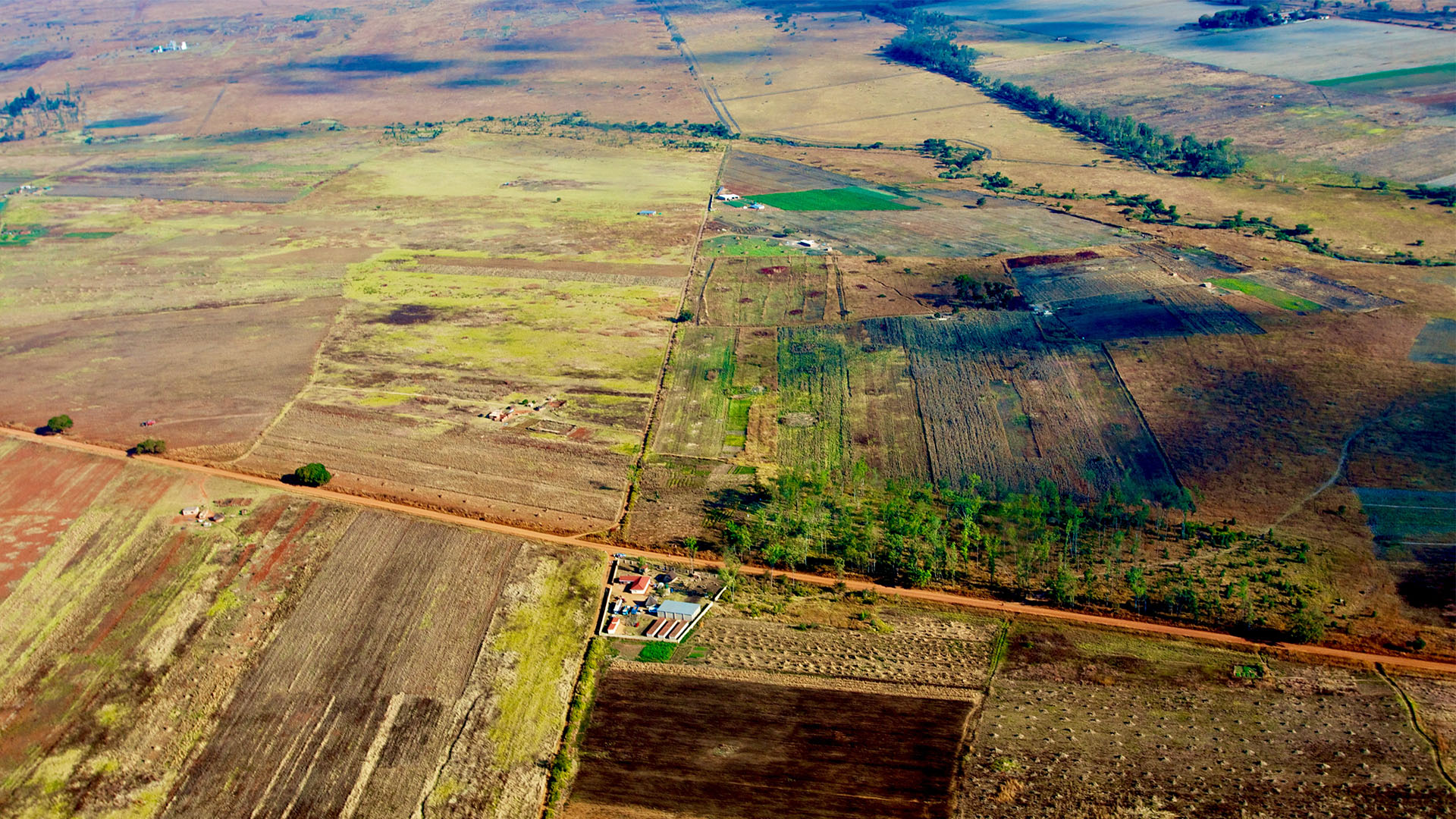
Agricultural land in Zimbabwe
Land seizure in Zimbabwe
This is illustrated especially well in the example of Zimbabwe. About a third of Zimbabwean land is freehold – historically, it belonged to the white settlers and comprised urban land and the country’s best farmland – and about half is held under CLR. But much of the freehold land was acquired by the government through its land reform programme of the early 2000s. Groups of indigenous Zimbabweans occupied the large farms held by the minority white population until many fled and their land was seized. It was then redistributed: some so-called ‘A1’ applicants received smallholdings of about six hectares, but a few ‘A2’ candidates received much more land.
“The land was supposed to be given according to experience,” says one Zimbabwean surveyor who prefers not to be named. “But that criteria was not enforced. It went with political allegiance.”
Although this redistributed land could eventually be converted to leasehold ownership, there were clauses within the leases that allowed the government to recall the land with just a few weeks’ notice. Banks lost confidence because of what they regarded as “interference” by the government in the security of tenure and were unwilling to lend against it.
Meanwhile, the dispossessed white owners had begun to take legal action against the Zimbabwean government, demanding compensation. International investors – as well as banks that might have helped the country restructure its mammoth debts – faded away, in part because of the way in which land security had broken down.
After witnessing this legal and constitutional chaos, the Zimbabwean surveyor says that “the people here unanimously prefer freehold land. They know and appreciate the benefits of the security of tenure and ownership of property associated with freehold title deed.”
“In the UK, 4% of government revenue comes from land and property tax. In Kenya, only 0.1% does” James Kavanagh MRICS, RICS
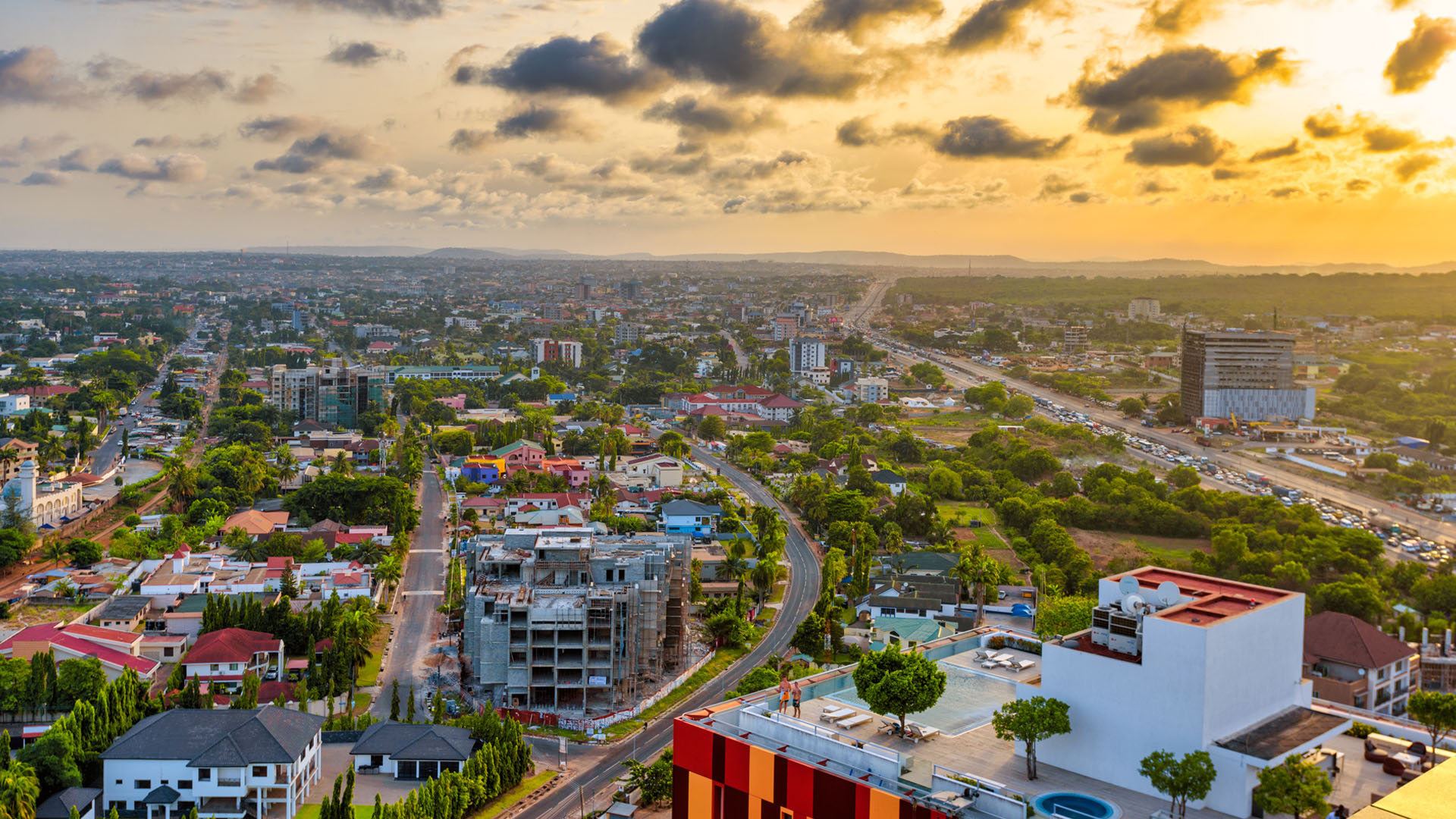
Accra, Ghana
Suspicion of formal land tenure
On a continent where freehold land was more likely to be the preserve of colonialists and this tenure often disadvantaged indigenous Africans, away from Zimbabwe FLT is still viewed with suspicion by many. Few countries in Africa are without instances of trying to accommodate European-style land ownership alongside traditional CLR – and generally it is CLR that loses out.
Africans might be wary that ‘regularising’ or ‘formalising’ land tenure is just the latest attempt by Western governments or corporations to disadvantage those used to CLR.
“Throwing someone off their land in colonial times was common,” says Aha. Given the choice, he adds, “I think I would lean more towards the traditional system [although] it needs to be strengthened. That’s the big challenge.”
Asiama agrees that, on the ground, many Africans prefer CLR. “There’s no pull for formalised land rights except from foreign investors and African governments.
They try to push it through among chiefs who know that they can monetise their land. It’s one of the debates my dad and I have: should chiefs or government manage the land? I feel if you take away the land from chiefs, you take away a huge amount of their authority which is central [to Ghanaian society]. I do think, however, chiefs should allow professionals to manage it on their behalf.”
“Safe tenure rights are fundamental to ending poverty in Liberia” The Food and Agriculture Organization for the United Nations

